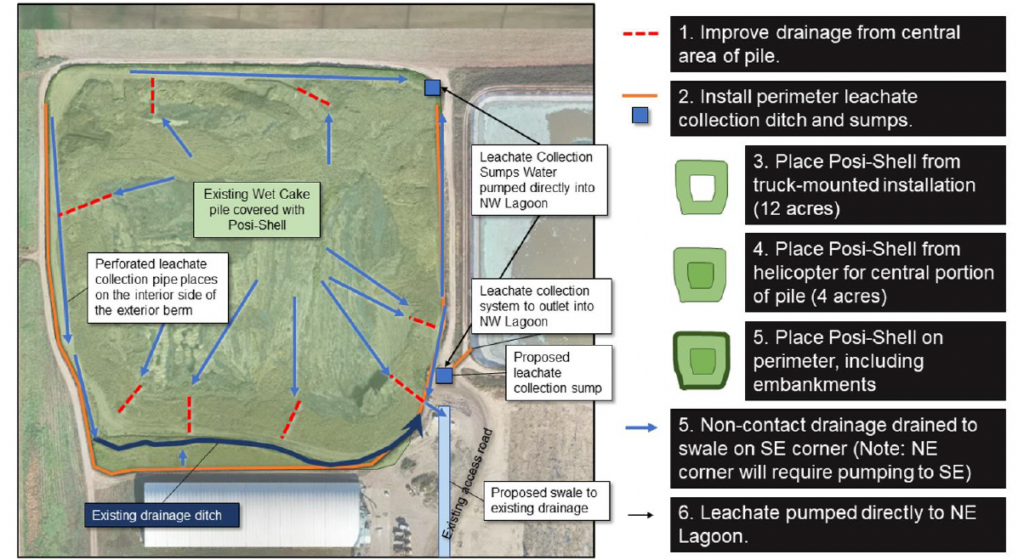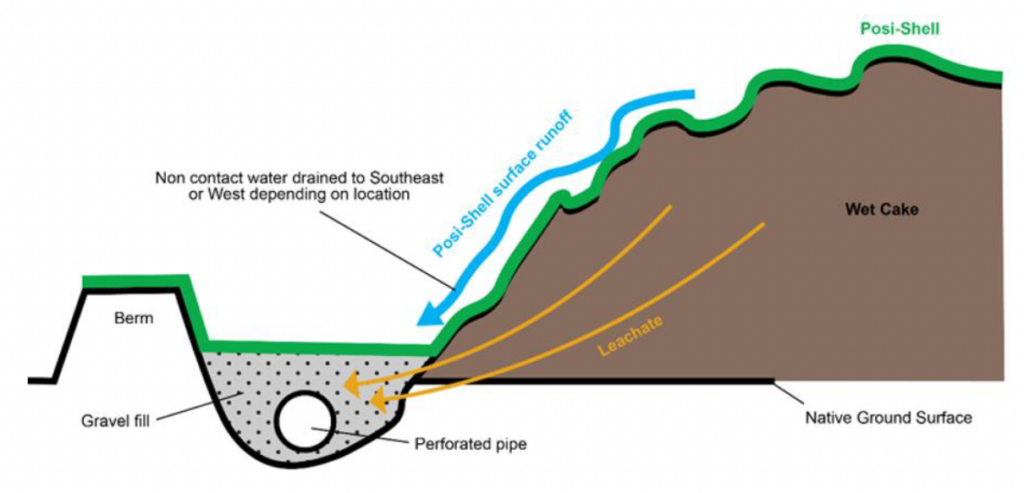The below information has been provided in an effort to help keep the community informed on a more frequent basis about progress at the AltEn site.
Ever since AltEn ceased operations at its facility in Mead in 2021, the AltEn Facility Response Group (FRG) has been voluntarily working under the guidance of the Nebraska Department of Environment and Energy (NDEE) to stabilize the AltEn site and develop a Remedial Action Plan (RAP) for the site. The FRG’s top priorities have been and continue to be to help ensure the safety of the surrounding community and environment. To-date, there has been no evidence of impacts to local drinking water.
The FRG is working diligently with the NDEE to identify the most effective and safest methods to address the current environmental conditions on the AltEn site. The remedial action plans (RAP) will recommend remediation for components remaining on-site, including wastewater, sludge, and wet cake.
February 1, 2022
An Update
The AltEn Facility Response Group (FRG), working under Nebraska Department of Environment and Energy (NDEE) oversight, continues to secure the AltEn site under the Voluntary Cleanup Program.
There are two parts to this undertaking: First, working in many areas to stabilize the site for the unpredictable winter weather and, second, to explore and determine our recommendation for remediation of the site under the next effort by NDEE. Both of these objectives are important for the people of Mead, the state of Nebraska and the FRG.
In November 2021, the FRG submitted an interim remedial action plan (IRAP) detailing the substantial activities undertaken by the FRG to manage the immediate concerns relating to lagoon water and wet cake stored on the AltEn site, as well as stormwater runoff.
Since the IRAP was submitted, the FRG continues to make progress at the site. We have refurbished the emergency pond so the digester tanks could be safely drained to eliminate the potential for a rupture or release during winter conditions; deflated a methane-filled “whale” underneath the liner of the northeast lagoon; completed treatment of 13.4 million gallons of lagoon water and continue to treat more water; consolidated all of the wet cake in one location; and winterized AltEn’s ethanol process plant and piping. We also are managing the chemical inventory left behind by AltEn.
With oversight from NDEE, in 2022 we expect to provide farmers, at no cost to them, up to 23 million gallons of water treated to reduce animal waste, seed treatment chemicals, etc., to levels that allow for beneficial usage on cropland. The treated water contains nitrogen, an important nutrient for crop production. With rising nitrogen prices, the water can be a significant benefit for growers’ fields. The water has been tested and is being handled consistent with extensive environmental permitting requirements under a plan approved by NDEE. The FRG is conducting additional studies regarding other options for handling the remaining water at the AltEn site.
To date, neither AltEn nor any of its affiliates or owners has contributed to any of these site stabilization activities at the AltEn site.
What’s Next
Beginning in early February, weather permitting, we plan to cover the consolidated wet cake area as a protection from weather, minimizing the potential for stormwater contact with the wet cake, until a permanent solution is approved by NDEE. The process involves applying a special protective hard-shell coating over the wet cake, which is applied using a truck for the perimeter and helicopter for the center. The material is a Posi-Shell® EC formulation, a clay-based mineral product with polyester fibers applied in combination with Portland cement. This specific formulation was chosen for similar remedial projects over the past 15 years and has been extremely effective at erosion control, waste containment and odor mitigation. The coating is safe for the environment, animals and people. NDEE has approved the plan for applying the cover on the wet cake.
We want to let area residents know that a helicopter will be used for part of this project, which is the most effective way to apply the Posi-Shell coating to areas of the wet cake that cannot be reached by truck application. Helicopter application is a common method for applying this coating and will require several days, occurring only during daylight hours. When completed, the coating will cover the wet cake, reducing the generation of contaminated contact water and odor until a permanent remedy is selected to dispose of the wet cake.
We want to assure area residents that the contractors have prepared comprehensive health and safety plans. This includes the helicopter operator, Gwinnup Restoration Inc.; the Posi-Shell supplier, LSC Environmental; and the site contractor, Clean Harbors, that worked with the NewFields site engineer before the plan was submitted to NDEE. After the Posi-Shell has been applied, the system will be regularly inspected, including by drone and visual inspections, to confirm the system is performing as intended.
A drainage system is being installed under the Posi-Shell along the perimeter of the wet cake to collect rain or snowmelt passing through the coating, called leachate, that will be pumped to the lagoon system for subsequent treatment (Figure 1). Stormwater draining off the coating will flow into the ditches on the east and west sides of the wet cake. This noncontact stormwater will drain through to NDEE-permitted discharge locations (Figure 2).
In addition to the Posi-Shell coating, other site stabilizing efforts are currently underway, including construction of a lined pond system to provide more treated water storage capacity. The FRG will include recommendations, based on data from engineering, scientific and feasibility studies we will be conducting, to identify for NDEE options for permanent solutions for the stored wet cake and lagoon water. Questions about public hearings and comment periods for the permanent solutions should be directed to NDEE.



